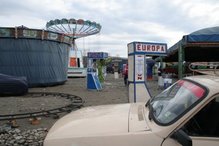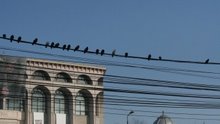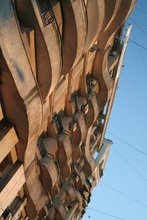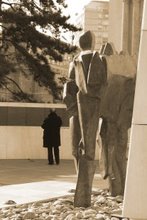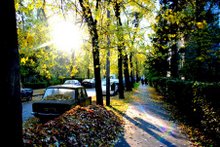The most interesting details about how people navigate their life-worlds, appreciate their social relationships, and evaluate how persons and self are and should be, during my fieldwork, have revealed themselves in very contingent ways. They have not magically arisen out of any formalised methodology, but they were in fact originated by the fact that I did engage, with all of my heart, with people I learnt to appreciate in their difference and similarity to my being. Just after David asked me about concepts of friendship, I got taught an important lesson. I thought the term for ‘friend’ (prieten) was somewhat more extended, but I do not think it is, and I had not considered it carefully. David said that in Polish there are only two or three people who would make the first category of friends, and then there were two other terms that designated people one could have drinks with. In Anglophone contexts, the category of friend, to me, is very flexible and large. It is a term easily used. One (semi-serious) example I think are the ‘friends’ on webpages like MySpace, for instance, where one click gets you an additional friend. In Luxembourgish, the term is almost absent, and is replaced by Kolleech (colleague), who is more of a buddy. It does exist more, I’d say, in the female version. In Lux, as in other Germanic languages, there is a certain amount of ambiguity because of the identity of boyfriend/girlfriend and friend, and it depends on the article used (possessive or indeterminate) to determine. In Romanian, this does not really work to differentiate (but to explicitly say ‘suntem doar amici’ – we are just friends), and some euphemisms exist, like in most languages, to talk about a romantic relationship (e.g. ‘they talk to each other’, ‘they are going out’, ‘they are dating’, ‘they go together’…).
But I divagate. Previously, I had gathered through an argument that I had with a friend that friends need to be respected, and this left me in a tricky situation later on. We went for a drink (juice) in a newly-built pension (foreign investment from Bucharest), and some of the people we went with were talking in ways about women that made me react in my stomach, even if I tried to stay calm. Now, given how I am, and my normative attitudes about politeness, I did not want to stop them there and then, but listened, waited for it to end, and, in due course, found myself getting very angry. Later on, I barked at the friend who I had taken me, and we started to discuss this. The argument went like this: I don’t like how these guys talk about women and you didn’t do anything to stop them. I didn’t say anything because they’re your friends, and I want to respect them like I can. They’re not my friends just because we go for drinks together. Why don’t you tell me what’s going on at least? Because I am polite, I am telling you now, not then.
All the assumptions you make about people’s relationships when you get to a village… man! Difficult to parse. At home, I would not take people for drinks if I was just living in the same place as them. You may take them if they work with you. The more I think about it, the more I believe that it is also something that splits among gender lines, and even along class lines. I would also argue it happens less in cities, where social networks are a lot more limited, because you can just avoid interacting with people who you may not share a lot of things, and this ‘sharing’ may be an important criterion for some. Even in my home village, it may happen more likely in situations of hanging out with people from a music ensemble (or two – but this is related to a common interest, music…) and so forth, it has never happened since I am away. I do admit, that as teenagers I used to hang out with people who were not particularly close, but maybe that is a different story, and shows of the lack of adult-social-life depth I have had in my native village. What do you think? Who is your friend?






